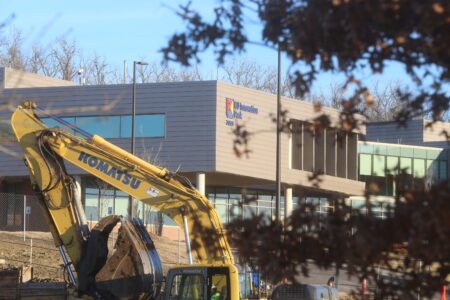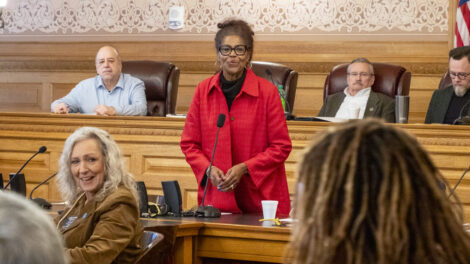McKinney, Estes facing off Tuesday in Kansas state treasurer’s race
Although incumbent state Treasurer Dennis McKinney was not elected to the post, he is no stranger to being a candidate for office.
He served nine terms as a state legislator before being appointed treasurer by former Gov. Kathleen Sebelius in 2009 to replace then-Treasurer Lynn Jenkins after Jenkins was elected to the U.S. House.
He believes voters will return him to the office when they go to the polls on Nov. 2.
“We are proud of what we’ve accomplished in just one year,” said McKinney, who set out with three goals for the year.
“Number one, we knew we had a tough year and had to be more efficient and had to cut costs,” McKinney said. “We wanted to be as innovative and creative as possible, and, third, we wanted to do whatever we could to create jobs with the programs we had.”
One of those programs was the Kansas Housing Loan Deposit Program.
It provides qualified builders and developers in Kansas access to $60 million in low-interest loans to finance housing development. Originally, it wasn’t being used.
“The usage is starting to come up, which means we are linking our banking projects directly to construction loans, which means more construction activities, more jobs and on our side it means more sales, income tax revenues,” McKinney said.
During a brown bag luncheon Oct. 19 on the Kansas University campus, McKinney discussed several state programs including the Unclaimed Property Program and Learning Quest, the state’s education savings program.
He hopes to expand upon those programs in the future but before those goals are realized, McKinney will face off against his Republican challenger, Ron Estes.
Estes currently serves as Sedgwick County treasurer. He initially was elected to that office in 2004 and then re-elected in 2008.
Like McKinney, Estes also seeks financial literacy for Kansans. He wants to expand upon and promote LearningQuest as well.
If elected to statewide office, he says his top priority is to improve KPERS, the Kansas Public Employees Retirement System.
“Earlier this year there was a PEW center study of all the state plans and Kansas came out second to worst in the country in terms of the amount of money that is funded to meet the retirement commitments, and so we need to make sure that we address that,” Estes said. “We need to work on a long-range plan because it really is a 50- or 75-year solution we need to come up with.”






